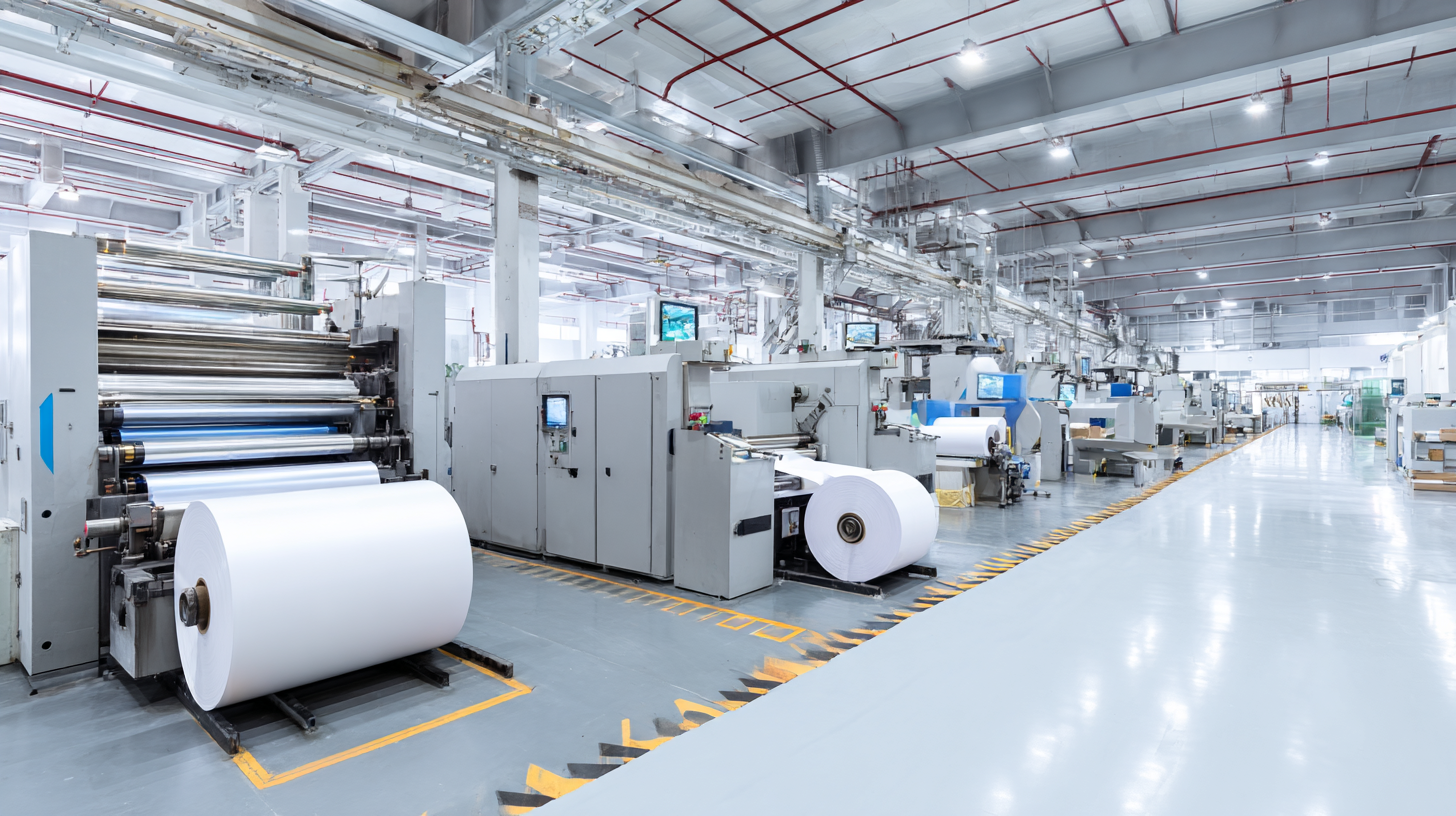
Solutions for Sourcing from the Best Manufacturers: Enhancing Quality and Efficiency
In today's competitive landscape, sourcing from the best manufacturers has become paramount for businesses aiming to enhance quality and efficiency. According to a recent report by McKinsey & Company, companies that prioritize partnerships with top-tier manufacturers see a 20-30% improvement in product quality and a similar increase in operational efficiency. Conversely, the Global Supply Chain Institute highlights that businesses often struggle with sourcing alternatives, leading to disruptions and increased costs, particularly when manufacturers do not meet industry standards.

As organizations navigate complex supply chains, identifying and leveraging reliable manufacturers is crucial. This blog will explore viable alternatives for sourcing that not only improve product quality but also streamline operational processes, ultimately driving success in a dynamic market.
Strategies for Identifying High-Quality Manufacturers in Competitive Markets
In today's competitive market, identifying high-quality manufacturers is crucial for businesses striving to enhance both efficiency and product quality. According to a recent report by McKinsey & Company, companies that prioritize sourcing from top-tier manufacturers can reduce production costs by up to 30%, while concurrently improving overall product quality. This underscores the importance of a strategic approach to manufacturer selection, particularly in industries where precision and reliability are paramount.
One effective strategy for identifying high-quality manufacturers involves leveraging data analytics to assess supplier performance. A study by Deloitte found that organizations utilizing advanced analytics for supplier evaluation were 35% more likely to experience improved supplier reliability. By examining metrics such as on-time delivery rates, defect rates, and certification compliance, businesses can make informed decisions and build partnerships with manufacturers that align with their quality standards. Furthermore, engaging in factory audits and third-party inspections can provide deeper insights into a manufacturer's operational practices, ensuring that they meet the required benchmarks for quality and efficiency.
The Role of Industry Standards in Ensuring Product Consistency
In today's competitive marketplace, the importance of adhering to
industry standards cannot be overstated.
Industry standards serve as benchmarks that ensure product consistency and quality
across various sectors. According to a report by the World Trade Organization, companies that comply with recognized standards
experience a 20% increase in customer satisfaction and loyalty.
By implementing these standards, manufacturers can streamline their processes
and minimize defects, ultimately leading to improved efficiency.
To enhance your sourcing strategy, consider the following tips:
First, actively engage with suppliers to evaluate their adherence to industry standards.
This not only builds trust but also guarantees that their products meet quality expectations.
Second, leverage technology to monitor compliance in real-time.
Advanced Quality Management Systems can provide insights into production processes,
highlighting areas for improvement. Lastly, stay informed of evolving standards in your industry
to ensure your products continually meet customer demands.
By prioritizing industry standards, businesses can significantly boost their operational efficiencies
and ensure product reliability. In a time where consumers are increasingly discerning,
these measures are essential for sustaining long-term success.

Leveraging Technology to Enhance Quality Control in Manufacturing
In the pursuit of enhancing quality control in manufacturing, leveraging technology has become imperative for industry leaders. The global market for process control systems is projected to grow substantially, driven by advancements in technologies such as Distributed Control Systems (DCS) and Programmable Logic Controllers (PLC). According to industry reports, the market size for these systems is expected to reach $XX billion by 2027, with a compound annual growth rate (CAGR) of XX% from 2023 to 2027. This shift showcases the increasing reliance on automation to maintain high-quality standards across various applications, including oil and gas, chemicals, and food production.

To optimize quality control processes, manufacturers should consider integrating multi-agent and multi-modal technologies. These innovations not only enhance data processing capabilities but also facilitate real-time monitoring, ensuring that production standards are upheld. Implementing private edge AI solutions, combined with robust connectivity like 5G, supports the digital transformation essential for Industry 4.0.
Tips:
- Invest in advanced DCS and PLC systems to streamline operations and reduce human error.
- Embrace edge computing and high-speed networks to improve data analysis and responsiveness in production lines.
- Regularly update and maintain control systems to adapt to evolving industry standards and improve overall efficiency.
Building Long-Term Relationships with Reliable Suppliers for Better Efficiency
Building long-term relationships with reliable suppliers is essential for enhancing overall efficiency in sourcing. When you establish trust with manufacturers, you create a foundation for better communication and collaboration. This alignment can lead to superior product quality and timely deliveries, which are crucial for maintaining a competitive edge.
Tip: Regular Communication
Engage in frequent dialogue with your suppliers. Scheduled meetings can provide insights into their capabilities and challenges, ensuring that both parties are aligned on expectations and goals. This proactive approach facilitates problem-solving before issues arise.
Tip: Evaluate Performance
Make it a practice to regularly evaluate your suppliers on performance metrics such as quality, delivery, and responsiveness. Constructive feedback not only helps them improve but also demonstrates your commitment to the partnership. By recognizing their strengths and addressing weaknesses, you strengthen the collaboration over time.
Ultimately, fostering these valuable relationships will yield long-term benefits, allowing for agile responses to market demands and innovation opportunities.
Best Practices for Auditing and Assessing Manufacturer Capabilities
When sourcing from top manufacturers, auditing and assessing their capabilities is crucial to ensure quality and efficiency. Start by establishing a comprehensive checklist that encompasses key factors such as production capacity, technology utilization, and workforce expertise. This checklist should include on-site evaluations that allow you to observe the manufacturing processes and working conditions first-hand. Taking the time to conduct factory visits not only helps gauge the manufacturer’s operational standards but also facilitates direct communication with management, fostering a transparent partnership.
Furthermore, it’s essential to review a manufacturer’s past performance and client testimonials. By analyzing case studies and customer feedback, you can gain insight into their reliability and responsiveness. Additionally, ensure that the manufacturer complies with relevant industry standards and certifications, which can serve as benchmarks for their quality assurance practices. Engaging third-party auditors may also enhance the assessment process, providing an unbiased evaluation of the manufacturer’s capabilities and adherence to best practices. This thorough assessment strategy will ultimately empower businesses to make informed decisions when selecting the right manufacturing partner.
Solutions for Sourcing from the Best Manufacturers
This chart illustrates the assessment of manufacturer capabilities based on various critical quality and efficiency metrics.
